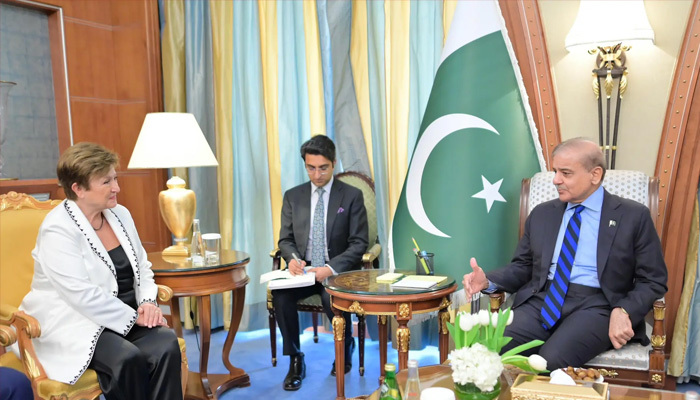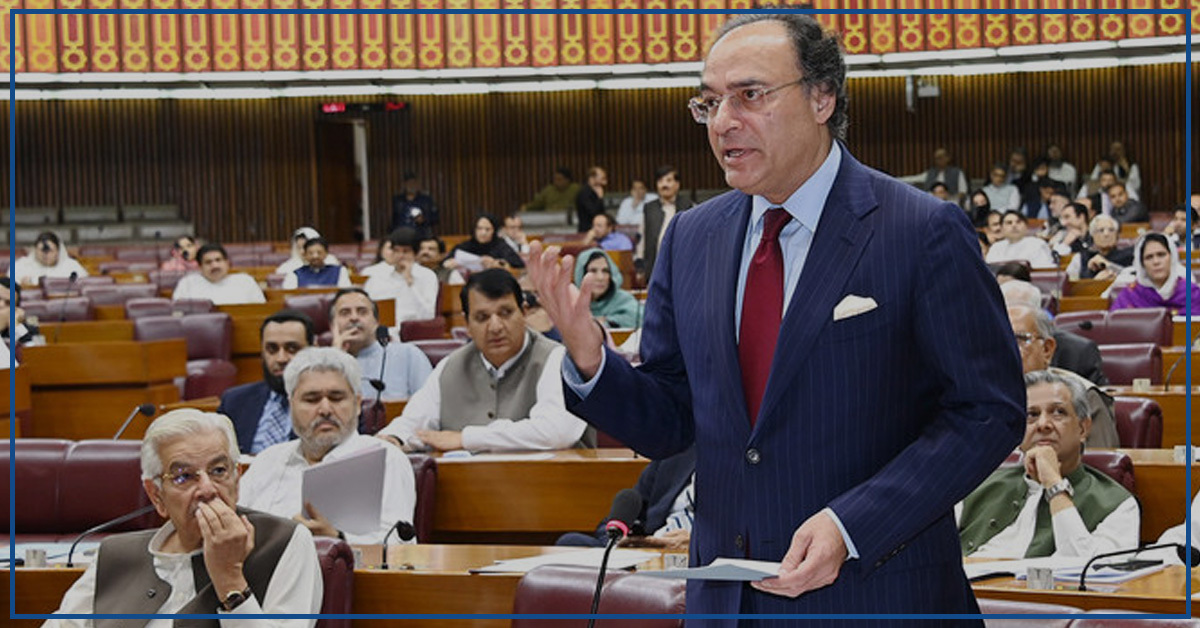Minister for Finance Muhammad Aurangzeb cautioned on Sunday that Pakistan must enhance its tax revenue to avoid continued reliance on International Monetary Fund (IMF) bailouts.
Aurangzeb expressed “relative confidence” in securing a staff-level agreement with the IMF this month for a loan ranging between $6-$8 billion. However, he stressed that without significant improvements in tax revenue, this will not be the last IMF program Pakistan will need. The finance minister’s remarks were made during an interview with the Financial Times.
Last month, the federal government introduced a tax-heavy Rs18.877 trillion budget for the fiscal year 2024-25 (FY25). This budget is designed to increase public revenue and meet the IMF’s demands for better tax collection. The goal is to raise Rs13 trillion by next July, a 40% increase from the current fiscal year, to reduce a crippling debt load that consumes 57% of government revenue through interest payments.
The proposed tax increases will predominantly impact salaried workers, who make up a small segment of Pakistan’s largely informal economy, along with some retail and export businesses. The budget also includes punitive measures for tax evaders, such as restrictions on mobile phones, gas and electricity access, and international travel.

“We don’t have five years for our program,” Aurangzeb emphasized following the budget announcement aimed at revitalizing the economy. “We need to start delivering results in the next two to three months.”
Despite the challenges, Aurangzeb noted positive trends, highlighting the confidence shown by investors in the stock market, with the KSE-100 index being one of Asia’s best-performing indices this year. However, he acknowledged the substantial task ahead in achieving long-term growth and debt sustainability for Pakistan.
The country’s debt has escalated since the mid-2000s due to a failure to invest loans from international bondholders and nations such as China and Gulf countries into productive, export-driven sectors. Consequently, Pakistan remains dependent on imports, necessitating further borrowing to service existing and new debts, Aurangzeb explained.
“We need to build the capacity to repay loans,” Aurangzeb said, emphasizing that as long as the economy remains import-based, Pakistan will continue to deplete its dollar reserves and resort to borrowing from the IMF. Prime Minister Shehbaz Sharif has recently visited Saudi Arabia, the UAE, and China to secure investments in addition to the IMF program, which would be Pakistan’s 24th arrangement with the lender.
“It’s time for a reality check,” Aurangzeb stated, referring to Gulf investors’ demands for equity and board positions. “We must offer viable, bankable projects to attract investment.”
Aurangzeb also criticized the Federal Board of Revenue’s reputation for corruption, noting that corruption, harassment, and demands for bribes deter people from engaging with the tax authority. “This is not sustainable,” he asserted.
Expressing his understanding of the public’s hardships, Aurangzeb said, “I empathize with the pain people will feel. I was one of the highest taxpayers in the banking sector.”





